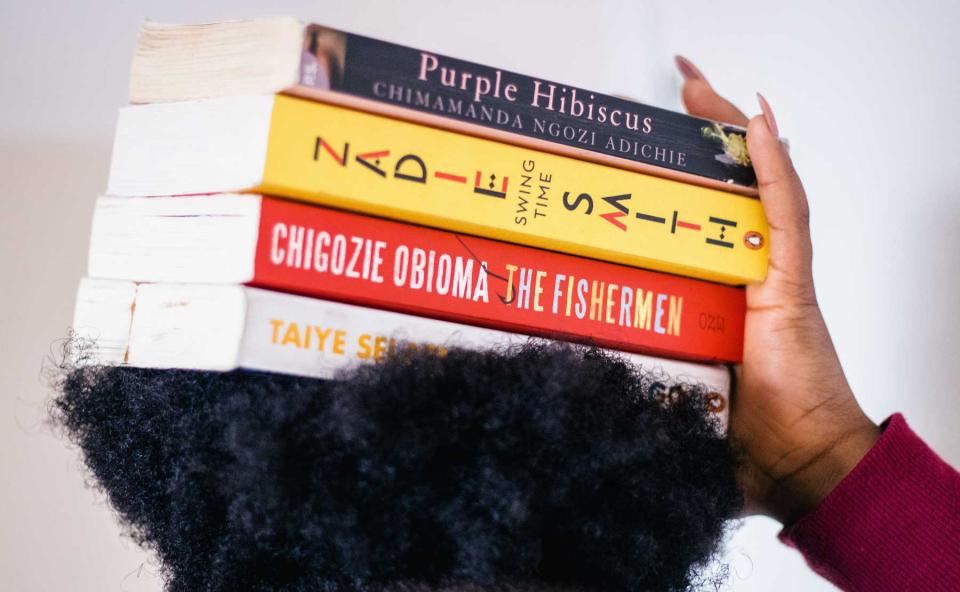
Photo by Suad Kamardeen on Unsplash
-A large number of the world’s population is now living online. Since 2016 especially there is a huge increase in people’s connectivity and interest in social media. The year 2016 also witnessed several online controversies and events both globally and locally during the elections in the USA, the Ghana elections and the Gambian Elections that happened almost concurrently.
About half of the world's population, most of whom are probably women or those not living in urban areas, do not have access to information and communication technology (ICT) and cannot effectively participate online. The international community comes together yearly to commemorate the International Girls in ICT Day to raise awareness about the gender gap in the technology sector. According to statistics from Action aid.org, women are 14% less likely than men to own a mobile phone. Moreover, 25% fewer women and girls are online compared to men and boys. In Africa, the gap is widening, with over 40% of women not able to effectively engage ICT tools for personal and professional activities. According to the UN Women.org, one out of four people that are read about in the news are women and only 27% of top management jobs in media organizations are held by women, in comparison with 73% of men. There is a 12% gender gap among the 3.6 billion internet users worldwide. Again, encouraging women to participate in online content creation will give them the push needed to develop. The Amomama Foundation in its quest to encourage women in online content creation established its roots in Ghana a year ago and have made a massive improvement. Within a year of operation, the organization recorded over 21 million followers, 98% of whom are women, and the majority of these women are over the age of 45.
Women are 14% less likely than men to own a mobile phone. Moreover, 25% fewer women and girls are online compared to men and boys.
ECONOMIC IMPACT
Online content creation does not only establish the presence of the content creators but also serves as a form of revenue generation. Over the years, many people have earned money from their blog posts or youtube channel. Sponsors find such channels as a form of advertisement especially when there is massive viewership, hence, telecommunication companies such as MTN, Vodafone and AirtelTigo pay Youtubers with the highest viewership for advertisements. Tryphena Yeboah is a blogger and a poet who uses technology to create content for her followers.
Creating and sharing my work online has provided me with a fast-growing virtual audience that would have been difficult to build physically.
Trryphena Yeboah sated “Creating and sharing my work online has provided me with a fast-growing virtual audience that would have been difficult to build physically. Through my online platforms, I have been able to create, over the years, a vast system of networking, providing me with the chance to work on artistic collaborations with artists over the world. The significance of creating content online cannot be underestimated. What I deem most important to me is the gift of discovery it has given me and the flexibility that comes with owing an account and choosing what kind of content to share. I believe the online space is dominated by women as compared to men. My observation points to beauty and lifestyle as major trending themes in our generation and a majority of female writers/bloggers have built their site focusing on these themes. While other subjects exist on the internet, these two cuts across various genres, hence, gathering a wide majority of viewers/audiences. Women are more present in the online community. They adopt a large variety of style and ingenuity in ensuring that they create content that not only helps build their brand but also attract the right audience. Economically, I generate money from my blog and I at times get people who invest in my production because they love the content I am producing.”
INCLUSIVE ONLINE CONTENT CREATION AMONG WOMEN.
According to a 2013 Intel report “Women and the Web,” enabling internet access for 150 million women would contribute an estimated $13 billion - $18 billion to the annual GDP across 144 developing countries. The report emphasized the increasing internet access in developing countries will improve education outcomes for more than 500 million women. A research done by Opportunity International about Ghanaian women who are technologically inclined reaffirms Action Aid’s statistics that women on an average are 14% less likely than men to own mobile phones. 25% of Opportunity’s women clients are not yet active on digital or mobile financial services, because they have lesser exposure to digital technologies and generally tend to rely less on technology. How then, can women create content if they are not familiar with technology?
Having said that, it is women in the hospitality industry who moved their business to another level and made their presence felt online. Most food bloggers use online content to generate income and also as a means to create awareness about the various restaurants they frequent regularly.
The African Summit for women and girls in technology which was held in Accra last year saw an increase in the number of women participations by one-third. The Summit brought together over 250 women across the continent’s tech industries to determine the policy steps needed to close Africa’s growing digital gender gap. The Minister of communication Mrs Owusu-Ekuful made reference to a 2015 study by the McKinsey Global Institute which found that US$ 12 trillion could be added to the global economy by 2025 through advanced women’s equality. It was well noted that the report listed technology as one of the six key gender gaps that need to be bridged in order for women to reach their full potentials and also contribute to Ghana’s economy.
How then, can women create content if they are not familiar with technology?
LANGUAGE AND LOCAL CONTENT
Language plays a key role in closing the gender gap. According to a survey conducted by Indexmundi, 71.4% of females in Ghana can read and write. It is however mind-blowing to know that out of this 1/3rd live in rural settlements where they have no direct assess to electricity. This denial of their basic amenities also prevents them from accessing the internet, hence women in those areas do not take an interest in online activity. And even if they do develop an interest in creating content online, they would find it difficult to participate because of the language barrier. The Localization Lab, an American based organization is therefore working had to create contents that can be accessed in the local languages available to everyone.
CONCLUSION.
This milestone of involving women in online content creation will be key in guaranteeing that women in Ghana indeed utilize the opportunities afforded by the internet without encountering its pitfalls and adverse effects. Also enabling them to attain economic self-reliance, have their voices heard through the content they create, and last but not least, perhaps also address the gender-based inequality in Ghana. Economic self-reliance is key and with the spread of technology across the globe, more women could attain economic independence from their online content.
Economic self-reliance is key
- 4420 views






Add new comment